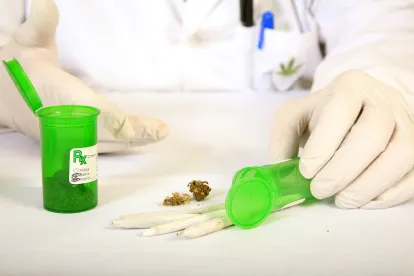The Agriculture Act of 2018 legalized hemp and hemp-derived cannabidiol, or "CBD," on the Federal level by removing both substances from the definition of "marijuana" under the Controlled Substances Act of 1972.
But, that legislation left the regulation of hemp and hemp-derived CBD to state and federal agencies like the United States Department of Agriculture, the Federal Food and Drug Administration ("FDA"), and, if they so choose, applicable State-level agencies. Thus far, there has been little to no guidance from the North Carolina and Federal regulators as to how they would ultimately regulate hemp and hemp-derived CBD. On the day President Trump signed the Agriculture Act of 2018 into law, the FDA issued a nonbinding press release, which you can read here, which left the industry and its consumers with more questions than it answered. Other states, like New York, have recently followed the FDA's signal and taken a hardline stance by prohibiting some production and/or sales of products containing hemp-derived CBD. Now, it appears that North Carolina may follow suit.
Last week, the North Carolina Department of Agriculture and Consumer Services, Food and Drug Protection Division (the "Division") disclosed its intent to issue CBD Advisory Warnings, which you can read here. The Division takes the position that under the Federal Food, Drug and Cosmetics Act, which has been adopted and implemented in North Carolina, (i) it is illegal to sell any human food or animal feed in North Carolina that contains CBD because CBD is the active ingredient in an FDA-approved therapy, (ii) CBD cannot be considered a dietary supplement because of its inclusion in an FDA-approved drug, and (iii) any product that contains CBD and makes health-related claims must be approved by the FDA prior to sale. Right or wrong, the Division will begin issuing warning letters to companies and retailers that it believes violated these provisions. For now, the Division has signaled that it will take an "educate first" approach with the industry. But, companies that do not comply with the Division's notices and demands may subject themselves to additional future action, including product embargoes and seizures.
The recent legalization of hemp and hemp-derived CBD really should be referred to as their "decriminalization". While hemp and hemp-derived CBD are no longer Schedule I controlled substances under the Controlled Substances Act of 1972, the decriminalization of those substances has subjected them to extensive regulation by Federal and state authorities. The legal landscape is incredibly dynamic right now, with major developments occurring at a rapid pace. Until the industry matures and final regulations are developed and implemented, it is imperative that hemp and CBD industry participants stay abreast of these developments.





 />i
/>i
